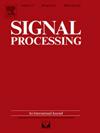Incremental Undersampling MRI Acquisition With Neural Self Assessment
IF 3.4
2区 工程技术
Q2 ENGINEERING, ELECTRICAL & ELECTRONIC
引用次数: 0
Abstract
Accelerated MRI acquisition is widely adopted and basically consists in undersampling the current slice at the cost of a quality degradation. What samples to skip is determined by an encoder, while the quality loss is partially compensated by the use of a decoder. The hypothesis behind accelerated MRI acquisition is that to higher acceleration factors always correspond lower reconstruction qualities with an undersampling pattern that is usually fixed at design time, neglecting adaptability on the slice acquired at inference time. This paper proposes a novel accelerated MRI acquisition method that enables single-slice adaptation by dividing the acquisition into incremental batches and estimating the reconstruction quality at the end of each batch. The acquisition terminates as soon as the target quality is reached. We demonstrate the efficacy of our novel method using a state-of-the-art neural model capable of jointly optimizing the encoder and decoder. To estimate the current quality of the slice we reconstruct and propose a neural quality predictor. We demonstrate the advantages of our novel acquisition method compared to classic acquisition for two different datasets and for both line-constrained and unconstrained Cartesian sampling strategies (theoretically implementable via 2D and 3D imaging respectively).
增量欠采样磁共振成像采集与神经自我评估
加速磁共振成像采集技术已被广泛采用,其基本原理是对当前切片进行低采样,并以质量下降为代价。跳过哪些样本由编码器决定,而质量损失则通过使用解码器得到部分补偿。加速磁共振成像采集背后的假设是,较高的加速因子总是与较低的重建质量相对应,而欠采样模式通常在设计时就已固定,忽略了推理时获取的切片的适应性。本文提出了一种新的加速磁共振成像采集方法,通过将采集分为增量批次并在每批结束时估算重建质量,实现单切片适应性。一旦达到目标质量,采集即终止。我们使用能够联合优化编码器和解码器的最先进的神经模型来证明我们新方法的功效。为了估计切片的当前质量,我们重建并提出了一个神经质量预测器。我们针对两个不同的数据集以及线性受限和非受限笛卡尔采样策略(理论上可分别通过二维和三维成像实现),展示了我们的新型采集方法与传统采集方法相比的优势。
本文章由计算机程序翻译,如有差异,请以英文原文为准。
求助全文
约1分钟内获得全文
求助全文
来源期刊

Signal Processing
工程技术-工程:电子与电气
CiteScore
9.20
自引率
9.10%
发文量
309
审稿时长
41 days
期刊介绍:
Signal Processing incorporates all aspects of the theory and practice of signal processing. It features original research work, tutorial and review articles, and accounts of practical developments. It is intended for a rapid dissemination of knowledge and experience to engineers and scientists working in the research, development or practical application of signal processing.
Subject areas covered by the journal include: Signal Theory; Stochastic Processes; Detection and Estimation; Spectral Analysis; Filtering; Signal Processing Systems; Software Developments; Image Processing; Pattern Recognition; Optical Signal Processing; Digital Signal Processing; Multi-dimensional Signal Processing; Communication Signal Processing; Biomedical Signal Processing; Geophysical and Astrophysical Signal Processing; Earth Resources Signal Processing; Acoustic and Vibration Signal Processing; Data Processing; Remote Sensing; Signal Processing Technology; Radar Signal Processing; Sonar Signal Processing; Industrial Applications; New Applications.
 求助内容:
求助内容: 应助结果提醒方式:
应助结果提醒方式:


